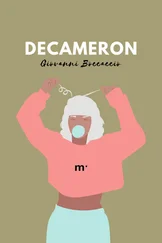“I think,” said Prentice, picking up the topic that had been picked up and then dropped repeatedly throughout this day of false starts and frustrating distractions and an outright presidential coup de théâtre, “that you will have to do a much better job of explaining to my wife and me why she must sign off on an ending that would most assuredly subvert the primary intent of her story, when the whole matter of a woman feeding a child in the way that God intended isn’t even addressed in the Hays Code. I’m looking at it right now.”
He was, in fact. A typewritten copy of the code, formally titled, “The United States Motion Picture Production Code of 1930,” all one page of it, was laid upon the table so that Prentice could stab it with his forefinger to make his point. “See? Nothing here about a mother nursing her child—”
Paulette interrupted from the coffee pot: “Not her child, dear — her friend’s child. That’s the point of the climactic scene: a wall has collapsed upon the crib holding her own baby, killing it. Her friend has sustained an injury to the breast that prevents her from nursing her own child, so our heroine volunteers her own milk to feed the other woman’s little girl in the name of sister love and Christian compassion.”
“It’s a moving story,” said McCubbin. “I wept when I read it. But you can’t show a tit on the screen — or even anything suggestive thereof — however high-minded your purpose. Mr. Mayer would shit a brick. If this entire matter got before the press, can you just imagine the firestorm? All the advance publicity for Gone with the Wind would be drowned with the bath water as this whole country got to arguing the pros and cons of wet-nursing on the silver screen. And I can tell you from experience, Mrs. Fedderson: that Puritanical subset of the film-going American public won’t sit still for it. Besides which, it isn’t even relevant these days. It’s a rarity, is it not, to find the mother of an infant who feeds her own baby in such an outmoded way?”
“It wasn’t a rarity in 1906, Mr. McCubbin, and that’s when my novel is set. It is also the year in which your movie will be set. And it was a good thing that women did feed their babies in the natural way back then, because otherwise all those nursing babies that survived the quake and the fire would have starved.”
McCubbin picked up the piece of paper with the Hays Code typed upon it and put it back into his briefcase. He folded his hands on the table before him. “I’m afraid, then, that we have reached an impasse. Because as lofty as our purpose might be in putting this on the screen, we remain forever at the mercy of the puerile imaginations of our audience. And I make this guarantee to you, Mrs. Fedderson: there will be those who will elbow one another and snicker — a few who will guffaw outright. The gravity and sobriety of the scene will be undermined by a schoolboy mentality in this country that is inescapable. The effect will not be what you’d wish. And those Americans who are not crass, my good woman, they are morally parochial. It is our job as purveyors of American culture to uplift them all, to educate and elevate them whenever possible to some higher, loftier sensibility. We simply cannot do this by giving them, ahem …knockers.”
Paulette Fedderson tutted. “It’s so typical of your male-dominated industry to take something so beautiful and so natural and turn it into something ugly and indecent. My story must suffer because of the prurience of the American male moviemaker. It sickens me. And it saddens me deeply, sir.”
Paulette sat down and held her head momentarily in her palms.
“I didn’t make the world the way it is,” responded McCubbin.
Paulette looked up. “Nor have you any right to rewrite my own life.”
For a moment Michael McCubbin didn’t speak. He turned to look at Paulette’s husband, who confirmed what his wife had just said with a commiserating nod.
Finally finding his voice, Michael said, “I knew that there had to be some autobiographical component to your book, but are you telling me the baby that lived — that was you?”
“Well, she certainly wasn’t the one crushed by the brick wall,” quipped Prentice.
“Mr. McCubbin — Michael,” said Paulette, her voice softened by the sudden serious turn in the discussion, “how could you possibly change the story without hiding the truth of what this woman did for me?”
“In the only way that Hollywood will permit us. That in our story, the mother will die at the same time as her friend’s baby and that the surviving child should then be raised by the woman who took it to her surrogate breast. We won’t see the, um, nursing, obviously, but every bit of maternal feeling will be there in the fade-out: the woman holding the orphaned child in her arms, knowing that she will now become the little girl’s new mother.”
Paulette shook her head. “In spite of the acceptable sentiment, it doesn’t tell the story the way that I want it told.”
“And is that a no, Paulette? Because you know that this is the deal-breaker.”
Before Paulette could answer in the affirmative, thereby delivering the death blow to the multimillion-dollar Technicolor adaptation of her bestselling novel, a project that David O. Selznick had already been champing to get his mitts on, Paulette’s mother Madeleine, who had just stepped into the kitchen, interrupted with, “I thought I smelled coffee brewing,” and then, “Paulette, dear, I’d take the offer if I were you. It’s the best that you’re going to get. Fifty years from now perhaps things will be different, but we live today in a world that doesn’t make a lick of sense — a world that is far from fair. You’ve been hearing what’s happening in Europe right now. And things are only destined to get worse. This movie will be about two women who come together in love and self-sacrifice. Depiction of such a relationship can only help to redeem this sullied world.”
Paulette was about to reply, but her mother silenced her with a raised hand. “I’m not finished. There’s another reason why your father and I are encouraging you to allow the change that the studio wants. It’s because the story that MGM wants to tell is , ironically, the valid one.”
“I don’t understand, Mama.”
“Your actual birth mother died in the quake. My birth child and your birth mother — they both perished in those terrible pre-dawn hours. I was that other woman, and your father and I — we adopted you. We’d always meant to tell you, but after a while it stopped mattering, because you had become such an integral part of our lives. And I could not be any prouder of you and your wonderful book than if I had given birth to you myself. The story you wrote, and the story that Mr. McCubbin would like to bring to the screen — the world needs more stories like these. And now I’ve had my say and I’m going to lie down on a bed. That sofa has lumps, honey. Wake me before nine. Your father and I want to hear one last episode in the thrilling life story of the “Golden-Haired Irish Girl,” Pretty Kitty Kelly, before we head back home. Do you listen to Pretty Kitty Kelly , Mr. McCubbin? Since you’re Irish, I thought you might.”
Michael McCubbin shook his head. Madeleine Gammond went to her daughter, kissed her on the forehead, and said, “I continue to be enormously proud of you. Your other mother would have been equally proud.” Then turning to McCubbin, she said, “Paulette’s birth mother was more stubborn than this one here. Consider yourself lucky not to be dealing with her .” Madeleine laughed. “Oh, and please let the record show that Paulette was very much correct in one thing I heard her say: if I hadn’t offered my own breast milk to feed this little girl during those horrible first few days before the city could pull itself back up on its feet, she wouldn’t have survived. That part of the story is very much true. Goodnight, all. Or should I say ‘good morning’?”
Читать дальше












